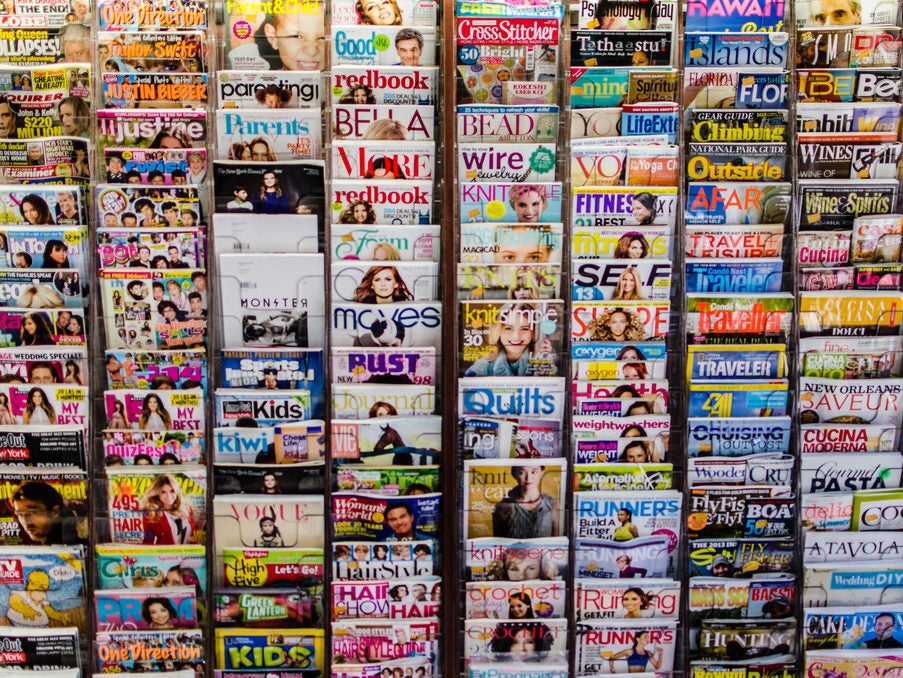
Leading magazine editors have called on the Chancellor to axe the so-called “digital reading tax” in his annual budget next Monday.
It follows a ruling from European Union finance ministers earlier this month permitting member states to reduce value-added tax rates on electronic publications to bring them in line with tax rules on print.
In the UK, printed newspapers, journals and magazines are zero-rated for value-added tax. However, digital versions of these publications are currently subject to standard-rate VAT of 20 per cent.
A leading newspaper body has already called for the Government to apply a zero VAT rating for electronic publications “as soon as possible” and claims the move will save the news media industry “millions annually”.
Now 13 editors, including GQ’s Dylan Jones, The Week’s Caroline Law and Empire’s Terri White, have dubbed the 20 per cent digital VAT rate “unfair” in a letter to The Times, published on Wednesday.
The letter is part of the Professional Publishers Association’s #AxeTheReadingTax campaign, which has called on Chancellor Philip Hammond to cut the digital reading tax to zero.
It reads: “As the Editors of some of the UK’s most popular magazines, collectively read by one in seven of the population each month, our publications range from politics, current affairs, entertainment, retail, to fashion.
“Our brands now reach more readers than ever, but readers of our digital magazines are penalised by an outdated VAT system.
“Consumers have long understood that printed magazines are charged zero VAT, whereas it comes as a surprise to most that the same quality journalism in digital editions is hit with a 20 per cent VAT charge which goes straight into Government coffers.
“This is simply unfair: it disproportionately affects our younger readers and those with accessibility requirements.
“As Ofcom recently confirmed, the pages of our magazines are the most trusted by consumers to deliver quality, accuracy and trustworthiness – regardless of format.
“In an era of fake news and with low literacy rates holding back the economy by £2.5bn a year, the Chancellor should use his budget next week to axe this unfair digital reading tax.”
Signatories to the letter comprise:
- Kath Brown, editor, Woman and Home
- Trish Halpin, editor-in-chief, Marie Claire
- Richard Headland, editor-in-chief, Which?
- Gaby Huddart, editor-in-chief, Good Housekeeping
- Dylan Jones, editor-in-chief, GQ
- Adam Leyland, editor, The Grocer
- Mark Frith, editorial director, Radio Times
- Caroline Law, editor, The Week
- Barry McIlheney, chief executive, PPA
- Paul McNamee, chairman, PPA Scotland
- Alex Mead, chair, British Society of Magazine Editors
- Rosie Nixon, editor-in-chief, Hello! Magazine
- Vanessa Richmond, editorial director, Ideal Home
- Sarah Spiteri, editorial director, Living ETC
- Farrah Storr, editor-in-chief, Cosmopolitan
- Charlie Turner, editor-in-chief, BBC Top Gear
- Terri White, editor-in-chief, Empire
According to the PPA, the total digital and print reach of the magazines backing the letter stood at 16,837,000 readers.
Earlier this week, the industry body for publishers released research that found reducing the rate of digital VAT to zero would cost the Treasury £210m in 2019/20.
But it claimed that savings for the NHS, universities, government departments and public libraries would cover 25 per cent of costs – bringing the total loss to an estimated £155m.
The research also predicted that axing the “digital reading tax” would stimulate investment in journalism and possible growth in the publishing industry, increasing corporation tax returns seen by the Treasury.
In a statement on the research, PPA managing director Owen Meredith said: “Magazine brands are reaching more people than ever with cross-platform distribution and digital audiences hungry for trusted, quality content.
“It makes absolutely no sense that people accessing the same content in digital formats are hit with a 20 per cent price premium; money that goes straight to the Treasury and does nothing to support investment in that quality journalism.
“As this report finds, the modest cost to the exchequer offers huge benefits for consumers and society, there is no logical reason for this digital tax. Now is the time for the Chancellor to act and axe the reading tax.”
Picture: Michele Ursino
Email pged@pressgazette.co.uk to point out mistakes, provide story tips or send in a letter for publication on our "Letters Page" blog
